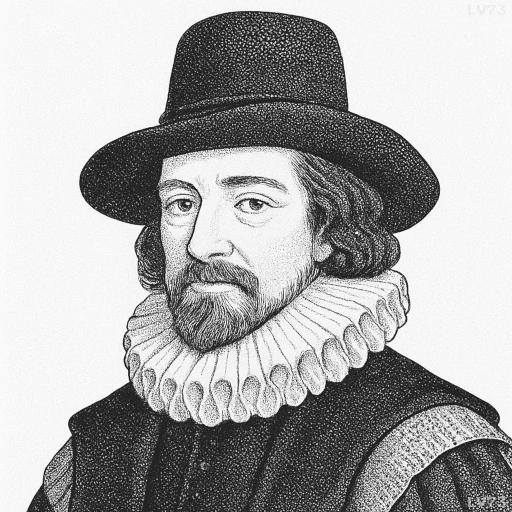“The quarrels and divisions about religion were evils unknown to the heathen. The reason was because the religion of the heathen consisted rather in rites and ceremonies than in any constant belief.”

- January 22, 1561 – April 9, 1626
- Born in England
- Philosopher, theologian, jurist, politician, aristocrat
table of contents
Quote
“The quarrels and divisions about religion were evils unknown to the heathen. The reason was because the religion of the heathen consisted rather in rites and ceremonies than in any constant belief.”
Explanation
In this quote, Francis Bacon argues that the conflicts and divisions over religion that characterized Christian Europe were unfamiliar to the ancient heathens (i.e., those practicing polytheistic religions in antiquity). Bacon suggests that one of the reasons for this difference is that the religion of the heathen was based more on rituals, rites, and ceremonies rather than a rigid, dogmatic belief system. Without the contentious theological doctrines that defined religious divides in the Christian world, ancient religions were more centered around practical observance than ideological disagreement. As such, these religious practices did not provoke the same kinds of quarrels or divisions that arose in societies where belief became a more central focus.
Bacon’s observation reflects the context of his time, when religious conflict was widespread in Europe, especially following the Protestant Reformation and the Catholic Counter-Reformation. These events intensified theological disputes between different Christian sects, leading to wars and persecution. Bacon, as a philosopher who promoted empiricism and reason, might have been pointing out that the fragmentation of religious beliefs in his own time was a source of societal strife. He contrasts this with the more pragmatic and ritual-based religious practices of ancient civilizations, where religious observance was less about doctrinal adherence and more about communal participation in sacred rituals.
In modern times, Bacon’s insight still holds relevance when reflecting on the role of religion in society. While religious conflict is still prevalent in many parts of the world today, there are also societies where religious practice is less focused on doctrinal differences and more on shared rituals, community values, and spiritual practices. For example, in some cultures, religious observance might center around communal gatherings, festivals, and rites of passage, where differing beliefs are secondary to the shared experience. Bacon’s idea highlights the potential for religious harmony when rituals take precedence over ideological division and suggests that a more ceremonial approach to religion may be a means of reducing the tensions that arise from doctrinal differences.
Would you like to share your impressions or related stories about this quote in the comments section?




